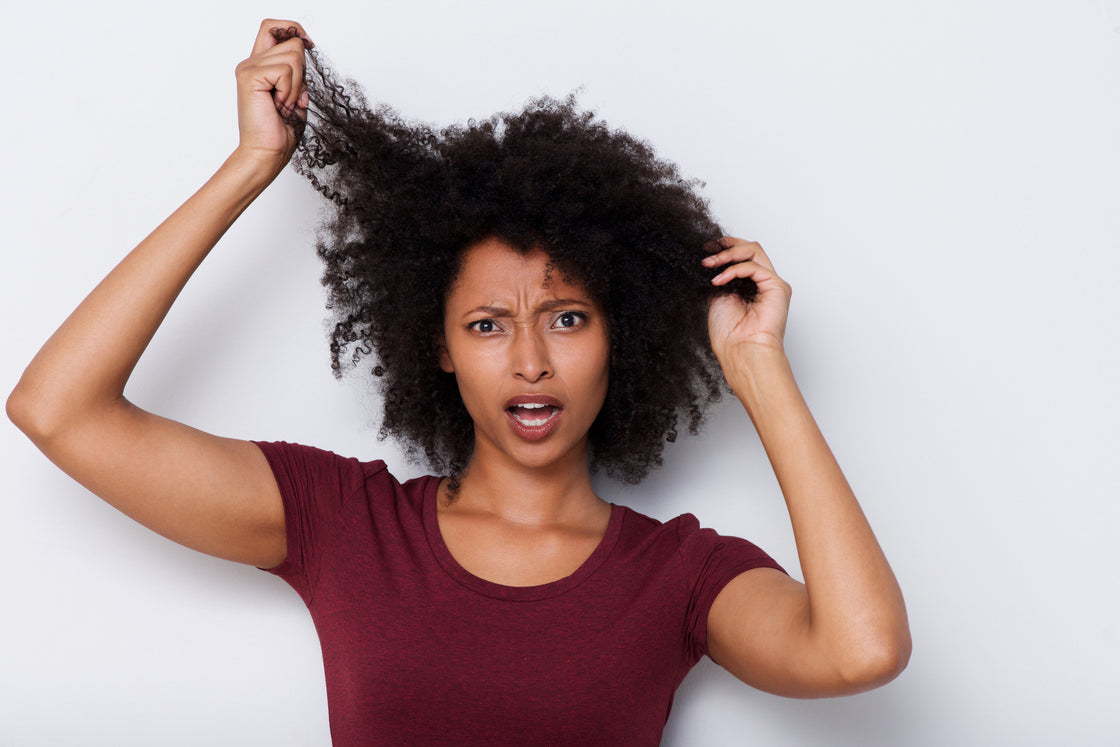There are many symptoms that come with menopause - some more common than others. But is hair thinning one of them?
Let’s be honest, aging doesn’t do much good for our hair, besides allowing us to look back on the styles of our younger days and learn from our styling mistakes. But one of the lesser known side effects of menopause is in fact hair thinning - both around the hairline and the crown, and in the very volume of your hair - due to the hair becoming more brittle and weaker as a result of the hormonal upheaval of this natural but challenging life stage.
In this blog post, we’re going to explain what causes hair thinning during menopause and identify some of the products and lifestyle changes you can try to minimise the impact of menopause on your hair.
Why does menopause cause hair thinning?
It all comes down to the effect that menopause has on hormones. And in order to understand the impact of menopause on the hair in as much detail as possible, it first pays to understand the life and growth cycle of a hair.
There are three cycles that occur during the life of a hair:
- Anagen phase, also known as the growth phase, lasts for between 3 and 5 years - with approximate growth of 1cm per month. The standard life of a hair will reach 71-76cm in length, with the cycle lasting longer for those of Asian descent.
- Catagen phase, a transitional period during which growth has stopped and the hair lies dormant.
- Telogen phase, during which time the follicle will release the hair and it will fall out, leaving the follicle clear for around 3 months before the cycle starts again.
Every part of this cycle is monitored by hormones. You only have to consider the impact of hormones on the different hair growth cycles for men and women to see how important they are to the control and transition between each phase.
Thus, it follows that when menopause begins and your body starts going through intense hormonal upheaval and change, the cycle which has long been supporting the regular growth and retention of volume for your hair will be impacted.
Living with hair thinning as a result of menopause
It is predicted that around 40% of women see hair loss as a symptom of their menopausal journey, with the lack of oestrogen during menopause often blamed for the decrease in hair growth and hair health. While some women try HRT as a treatment, others find it can make the problem worse; likewise, with DHT which utilises the testosterone hormone to readdress the balance of hormones in the body.
Of course, it’s not just those going through menopause who will find themselves facing hair thinning and a break in the hair growth and retention cycle. Anything which interrupts the nutrients required to keep this cycle moving will have a similar impact, be it stress, illness, intense weight loss, or an imbalance in the thyroids.
Prevention and treatment techniques for women facing menopause
So, what can you do to protect your hair from menopause and the effects of hair thinning?
- Consider using a good quality, caffeinated, thickening shampoo and conditioner
- Work on lowering stress levels
- Enjoy a balanced diet which contains all the nutrients your body needs, especially at this time of great upheaval and hormonal fluctuation
- Protect the scalp from sunburn as this can exacerbate the problem
Be sure to check out the Inspired Health blog for more useful articles to help support a healthy lifestyle.



